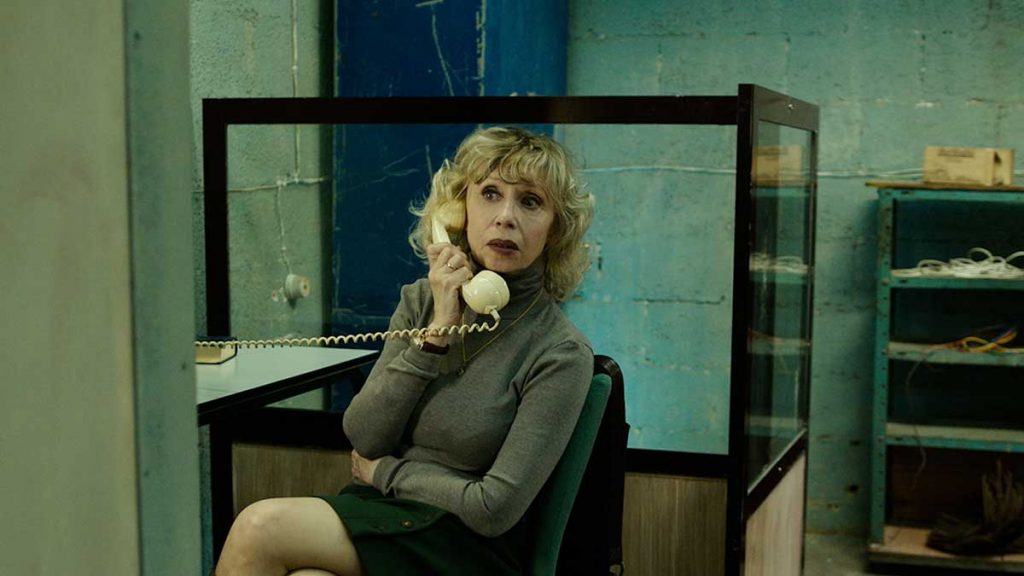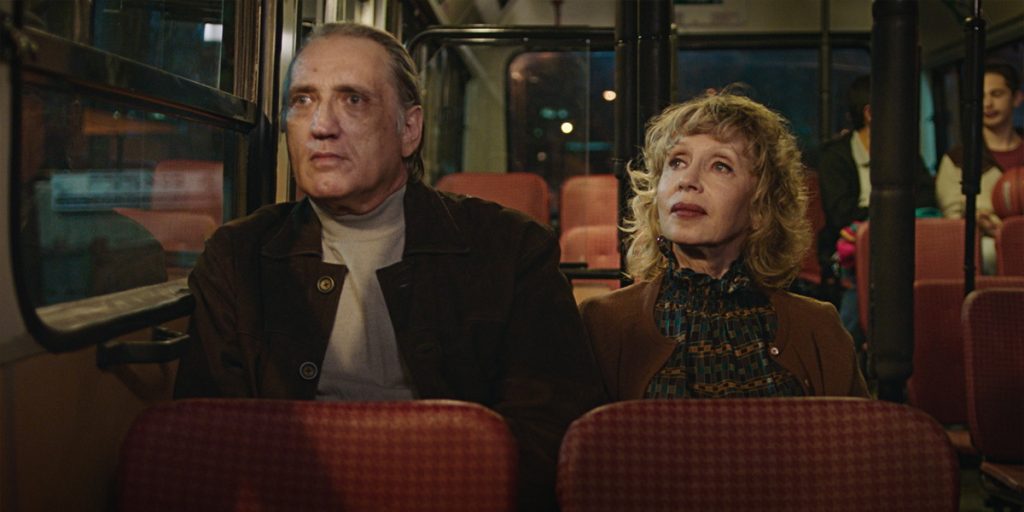Golden Voices pays tribute to cinema of old, but its focus remains on the plight of an immigrant couple whose careers and marriage are well past their prime.
Golden Voices is an Israeli film directed, co-written, and edited by Evgeny Ruman. Taking place after the collapse of the USSR in 1990, the story follows Raya (Maria Belkin) and Victor (Vladimir Friedman), a married Jewish couple who spent their lives dubbing and translating the most beloved films of their time to their native tongue. Now, however, they’re forced to immigrate to Israel and find work for themselves in their new home. Running low on opportunities, Victor finds work in dubbing films on the black market. Meanwhile, Raya resorts to working as a phone-sex operator, where she forms a bond with her most frequent customer, a shy man named Gera (Alexander Senderovich), that puts a strain on her marriage.
Golden Voices doesn’t have much in it that stands out as amazing, but it makes full use of its biggest strengths. Maria Belkin is easily the film’s best asset, as she turns in an extremely vulnerable performance in a very unique kind of role. An immigrant struggling to learn a language and taking a demeaning job is something that we’ve seen before, but it’s very refreshing to see in a character with this kind of background and personal history. It’s so unpleasant to see this older woman, fallen from great heights and unfamiliar with this environment, put herself through something as degrading as working in the phone-sex market.
Like many workers in similar positions, she’s forced to take a talent that could do, and has done, a lot of good, and instead put it to one of the least gratifying uses possible. This gets even worse as, gradually, you see that she doesn’t have that much more agency in her home life anymore, if she ever did. Signs of this start out as very subtle through her mild demeanor as her more headstrong husband takes charge, but it becomes much more explicit later on as she bonds more with Gera and less with Victor, and you see how much more oddly comfortable she starts to feel around her customer.
Victor isn’t the pure “bad guy” in this scenario, though. His love for the career he once thrived in is gotten across very effectively, primarily through Vladimir Friedman’s performance. His most powerful moment in the film comes when he’s watching an English film on TV and passionately recites the lines in his own language as it goes along. You understand that, like his wife, he loves what they made their living in over the years, to a point where he’ll resort to the lower standards and shady practices that the current environment forces him into to keep it going. I wouldn’t call Victor a likeable person, due to his pushy nature towards Raya and a rather violent reaction he has upon learning about her job, but he’s far from one-dimensional in both the writing and the acting.

Golden Voices is described through its marketing as a “tribute to the redemptive power of cinema.” I wouldn’t quite call it that. While cinema clearly plays a role as part of the main characters’ histories, as well as a driving force for Victor’s aspirations in particular, the film’s focus is definitely more on the married couple’s struggles to get by and stay together despite their diverting paths and deceptions towards each other. In the end, there’s not a sense of redemption as much as simple acceptance. These two don’t seem happier than when they started; rather, they’re more able to cope with their positions in life and with each other. You find yourself wishing that they could have further disrupted the system they’re stuck in, and you’re left unsure if there’s any way for them to climb up to achieve more than a modicum of self-fulfillment with where their lives seem to be going.
It’s hard to think of anything that Golden Voices does really wrong, and yet I don’t find myself extraordinarily moved by it. It’s fairly simple and straightforward in its execution, quiet and occasionally somber without really digging deep. There are a few different subplots that properly intersect, although the film’s rather short length means that these subplots don’t have quite as much time to really excel as much as their potential would allow for. Raya and her relationship with Gera is the most fleshed-out one, while everything surrounding Victor and the underground film industry is more in the periphery. Which is fine, but that does mean you’ll likely feel the difference in your investment when the former is cut away from.
I can’t give a glowing recommendation to Golden Voices, but it’s certainly a recommendation nonetheless. Great lead performances, a distinct setup, and an interesting (if minor) backdrop for cinephiles in particular, make this simple film worth a watch. It clearly has a lot of heart and soul put into it that really comes across, making it hard to imagine anyone coming out of Golden Voices without at least being glad they saw it.
Golden Voices was released on digital on January 25, 2022: get it on Apple TV+.

